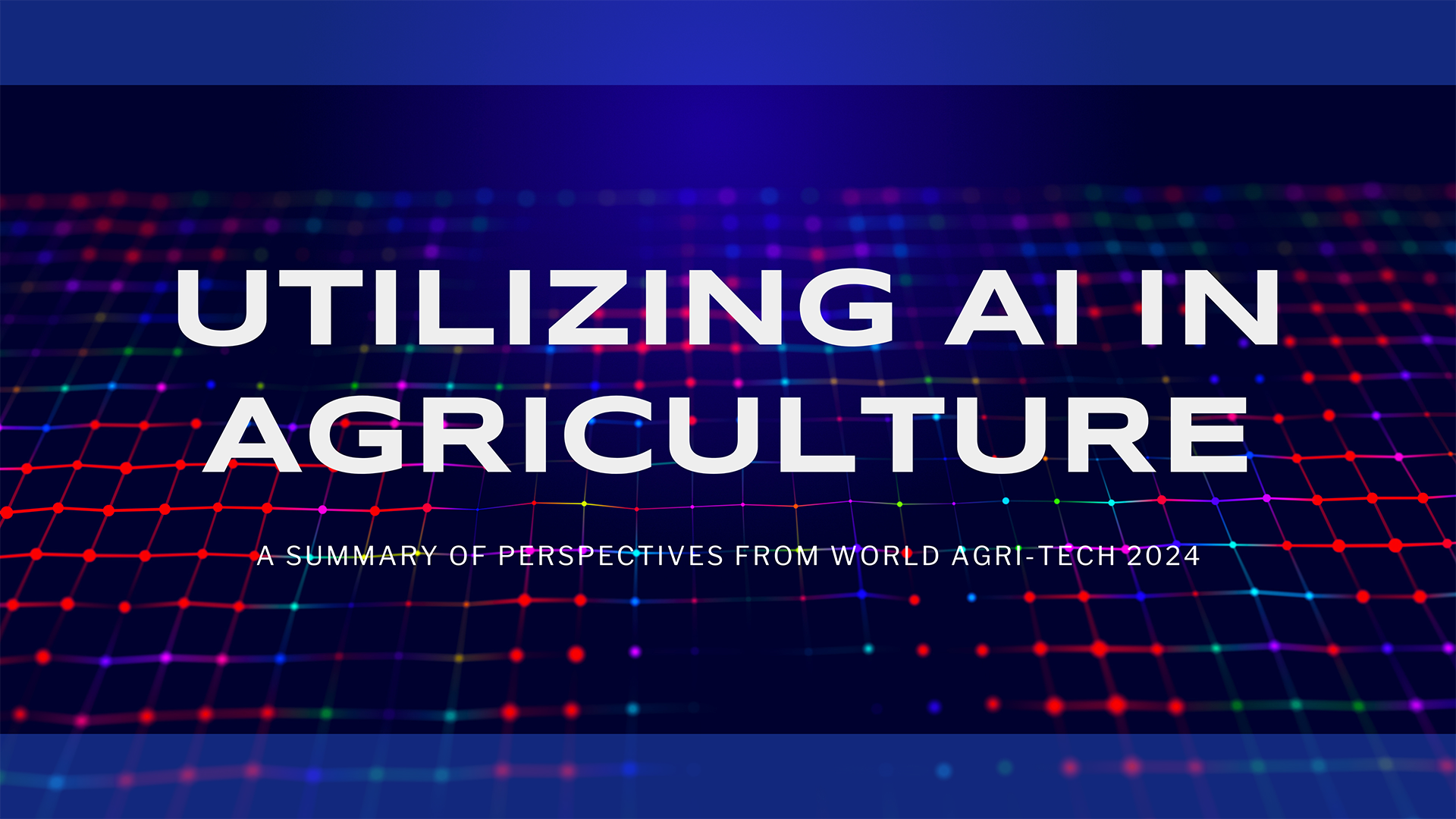Utilizing Artificial Intelligence
in Agriculture
Blog by: INTENT
Key Takeaways from the World Agri-Tech Innovation Summit Panel Discussion
In March, INTENT CEO Randy Barker joined industry leaders at the 2024 World Agri-Tech Innovation Summit in San Francisco for a panel discussion about how AI-driven efficiency, productivity and sustainability can enable digital transformation in agriculture. The panel delved into the many ways agribusinesses can develop digital solutions that farmers are willing to adopt and what the next generation of services and solutions will look like for the agriculture industry.
Plain and simple, digital innovation has and will continue to revolutionize the agriculture industry. And by incorporating artificial intelligence (AI) into the innovation process, there is an opportunity to vastly increase efficiency and profitability on farming operations.
Here are some highlights from the fruitful discussion in San Francisco:
1. Quality Data
A key point of emphasis was that AI is only as good as the data it learns from. And, according to Barker, the agriculture industry is going to need to get faster at providing high-quality, standardized data that’s capable of keeping up with AI.
“The data is at our fingertips and we’re getting that very well organized, but the pipelines and standardization is the challenge. This can go really fast because the AI is learning and growing independently of our actions, but we’re going to have to really hustle to understand how good or bad the data is,” he said.
The conversation also delved into the use of AI synthetic data in the agriculture industry. Barker pointed out that real-world trial data is important in training AI to create synthetic data that will actually be useful.

“At INTENT, where we’ve been really fortunate is with structured trial data in a geospatial sense or environmental sense, that’s what allows us to synthesize data and to physically create something that isn’t there,” he said.
He also reiterated the importance of having a plan for your pipeline and taking measures to ensure the data isn’t wrong. “If you don’t have the training data, you’ll synthesize bad data,” Barker said. “And if you don’t have a plan, or if you don’t partner or structure your data, whatever you come up with generatively will probably be a hallucination or just wrong. Farmers aren’t really interested in wrong. You can’t miss with your data; the agriculture industry is not going to allow that to happen,” he said.
2. Farmer Involvement
The panel discussion also highlighted the critical role of farmers in bridging the gap between innovation and adoption to accelerate the digital transformation of the agriculture industry.
“We’re always centered on making sure the farmer is involved in the data collection and gathering feedback about how an innovation did or didn’t meet their expectations,” Barker said.
He reminds us that with new innovations, agribusinesses will still need to prove that it actually works on a farm, even with AI solutions.
“As we go faster, we still have to get on the farm and understand what the expectation is and retrain to meet that expectation. We could have the best thing ever, but ultimately if it doesn’t work on a farm, we’re going to have to go a few steps backward,” he said.
3. Human Augmentation
The experts also examined the implications of AI on the future of work. Barker expressed that he views it as a tool that can help human teams work more efficiently.
“I look at AI as talent augmentation. We still need human oversight, but what I’m seeing is that it allows our teams to work faster and better. If you have a plan and some structure, I think AI can help us work better and that’s definitely what we’re all trying to achieve.”
Overall, AI is accelerating how ag innovations come to market. And by leveraging AI that’s fueled by high-quality data, agribusinesses will not only be able to help prove that their innovation works, but also demonstrate how their innovation can increase efficiency and profitability on farming operations to ultimately increase adoption.
At INTENT, we’re excited to see how AI will continue to enable digital transformation and increase adoption of new technologies in the agriculture industry. We recently unveiled our INNOVA offering which harnesses the power of AI and machine learning to transform complex datasets into predictive insights. To learn more, visit: https://intent.ag/innova/.
